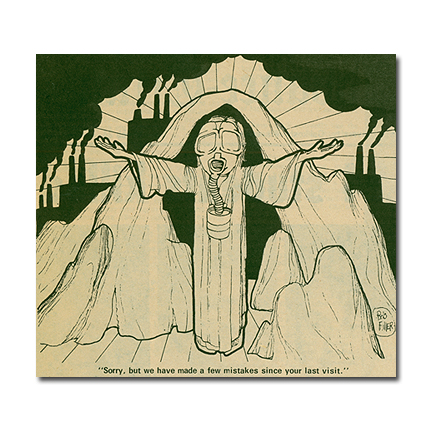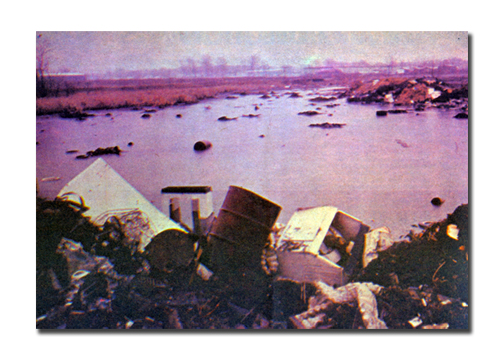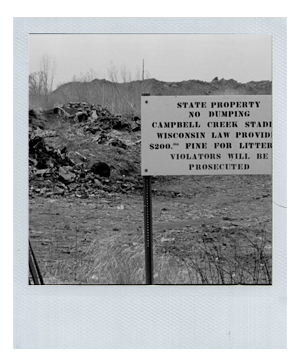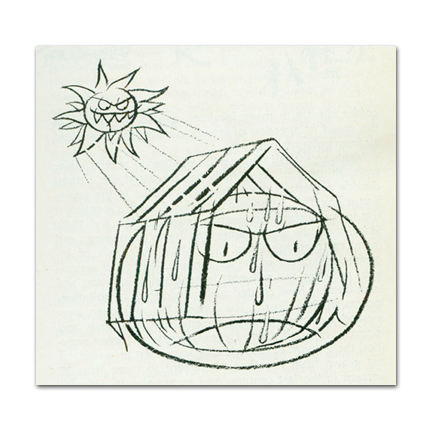
During the 1960s, Americans from all walks of life became acutely aware of the fragility of the earth's environment. Concerns over threats posed to the natural environment by pollution and reckless development of land were certainly not new to the sixties, but following the publication of Rachel Carson's best seller Silent Spring (1962), fears of an impending ecological crisis spread rapidly. By the end of the decade, a catastrophic oil spill from a rig off the coast of Santa Barbara, along with reports of the combustion of industrial chemicals in the Cuyahoga River in Cleveland, PCB (polychlorinated biphenyl) contamination in the Hudson, contaminated fish in the nation's waterways, smog in cities, and a myriad other travesties all heightened the American public's sensitivity to environmental concerns.
Young Americans, propelled by the same insurgent spirit that nourished the counterculture New Left and antiwar movements of the decade, joined liberals and women already engaged in environmental activism in pushing elected officials to respond. From the early sixties on, liberal Democrats such as Lyndon Johnson, Wisconsin governor and later U.S. senator Gaylord Nelson and Senator Edmund Muskie of Maine led the way in finding legal and regulatory remedies aimed at redressing environmental concerns. By 1970, even Republican president Richard Nixon felt compelled to respond to the crisis. In his February 1970 State of the Union message, Nixon declared that the 1970s “absolutely must be the years when America pays it debt to the past by reclaiming the purity of its air, its waters and our living environment. It is literally now or never.” Although personally indifferent to ecological issues, Nixon's keen political instincts told him he ought to get out in front of a movement that was quickly gaining momentum.
Internationally recognized artist and cartoonist Robert Osborn, raised in a home several blocks from the future campus of WSU-O, devoted a significant portion of his late career to illustrating his concern over the degradation of the nation's environment. In the May 1970 issue of Audobon, his depiction of what would be called the "greenhouse effect" accompanied an article contributed by Paul Ehrlich. (Audobon, May 1970)

WSU-O student cartoonist Bob Fuller contributed commentary on pollution on the pages of The Advance-Titan and the Fox Valley Kaleidoscope. (Advance-Titan, March 24, 1970)
By early 1970, residents of Oshkosh and the nearby Fox River Valley were likewise becoming increasingly concerned about the state of the region's fragile ecological balance. Concerned biologists such as Jacob Shapiro and William Sloey, professors at Wisconsin State University-Oshkosh (WSU-O), awakened students and members of the public to the dangers posed by industrial air and water pollution, eutrophication (particularly algae blooms triggered by phosphate pollution), and the continuing degradation of marshlands.
Disagreements raged over whether the abatement orders issued by the Wisconsin Department of Natural Resources on December 16, 1969 were sufficient to curb the destruction of aquatic life by the eighteen paper mills operating along the Fox River. The orders allowed the mills to discharge 143,200 pounds of suspended solids and 87,065 pounds of “basic oxygen demand” wastes per day. The Kimberly Clark Lakeview mill so overloaded the Neenah-Menasha treatment plant with effluent that an estimated 1.8 billion gallons of untreated waste water spilled into Little Lake Butte des Morts in 1969. When the Neenah-Menasha Sewerage Commission threatened to shut off sewer service to the Lakeview mill unless Kimberly Clark accept increased rates for sewage disposal, the paper company retaliated in court and won a temporary restraining order.

The city of Fond du Lac's use of marshland on the southern end of Lake Winnebago raised the hackles of local ecologists and citizens alike.
(Advance-Titan, April 23, 1970)

|
By the spring, concern over the ecological welfare of the region was omnipresent. While fourth grade children at Oshkosh's Roosevelt School performed a twenty-minute play titled, “The Trial of Rock River against River Waste,” petitions calling for an amendment to the state constitution establishing “a citizen's right to a clean and healthy environment” circulated in area colleges.
As a population ecologist warned delegates to a district meeting of Lutherans in Oshkosh that overpopulation and a dependence on monocultures posed serious threats to global ecology, attendees of a symposium sponsored by Wisconsin Chamber of Commerce elsewhere in Oshkosh listened to industry spokesmen urge attention to the responsibility individual citizens had to attack pollution through “private actions.”

Pollution was even common to state-owned property near the university. (UW Oshkosh Archives Photo, 70-161)

